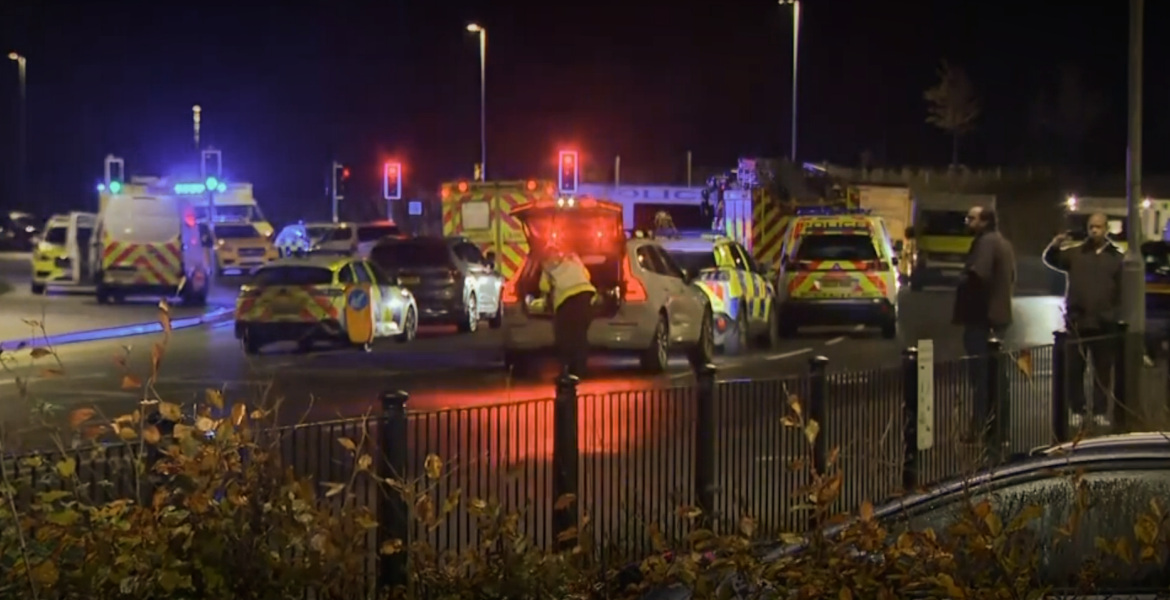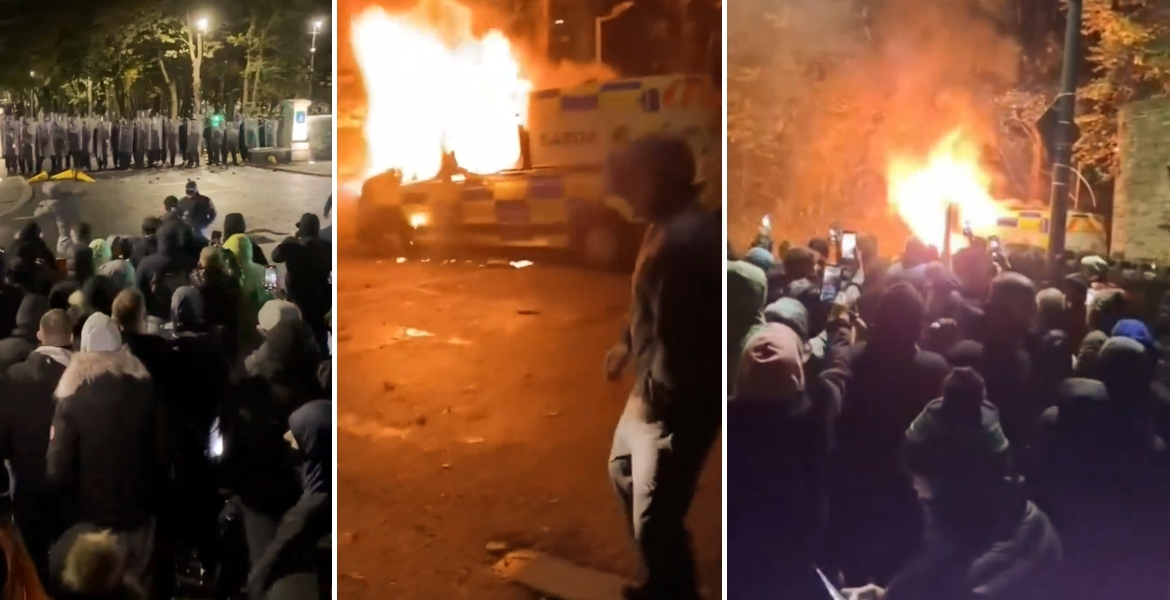Ten people have been taken to hospital following a knife attack on a London-bound train in eastern England, with nine of the injured suffering life-threatening injuries. Two people have been arrested and counter-terrorism police are participating in the investigation, but no motive has yet been established.
Bloodied passengers streamed out of the intercity train when it made an emergency stop in the town of Huntingdon, where dozens of police officers were waiting, shortly after multiple stabbings were reported on board. Two people were arrested by armed police at the station.
Police have not identified the suspects or revealed any motive, but state that counter-terrorism police are supporting the investigation.
"Ten people have been taken to hospital with nine believed to have suffered life-threatening injuries. This has been declared a major incident and Counter Terrorism Policing are supporting our investigation whilst we work to establish the full circumstances and motivation for this incident", the British Transport Police said in a statement early Sunday morning.
Police stated that "Plato", the national code word used by police and emergency services during suspected terrorist attacks, was activated. This declaration was later withdrawn, but no motive for the attack has been made public.
Unwilling to comment on motive
— We're conducting urgent enquiries to establish what has happened, and it could take some time before we are in a position to confirm anything further, commented Chief Superintendent Chris Casey, according to AP.
— At this early stage it would not be appropriate to speculate on the causes of the incident.
The attack took place when the train from Doncaster in northern England to London's King's Cross station was approximately halfway through its two-hour journey and approaching Huntingdon, a market town a few miles northwest of the university city of Cambridge.
Passenger Olly Foster told the BBC that he heard people shouting "run, run, there's a guy literally stabbing everyone", and initially thought it might be a Halloween prank. But when passengers pushed past him to escape, he noticed his hand was covered in blood from a chair he had leaned against.
"Horrendous scenes"
Emergency services, including armed police and air ambulances, arrived quickly as the train rolled into Huntingdon. The attack appears to have been stopped quickly after the train arrived at the station, and officers in forensic suits, along with a police dog, could be seen on the platform.
Cambridgeshire Constabulary, the local police force, stated that officers were called at 7:39 PM on Saturday evening to the scene, approximately 120 kilometers (75 miles) north of London.
British Prime Minister Keir Starmer said his "thoughts are with all those affected" by the "appalling incident".
Paul Bristow, mayor of Cambridgeshire and Peterborough, said he had heard of "horrendous scenes" on the train.
London North Eastern Railway, LNER, which operates the East Coast Main Line service in Britain, confirmed that the incident occurred on one of its trains and announced there would be major disruptions on the route until Monday.




